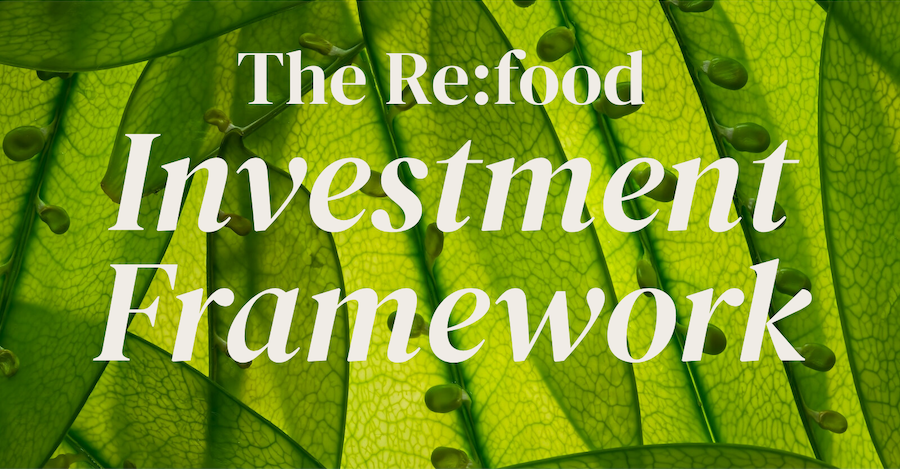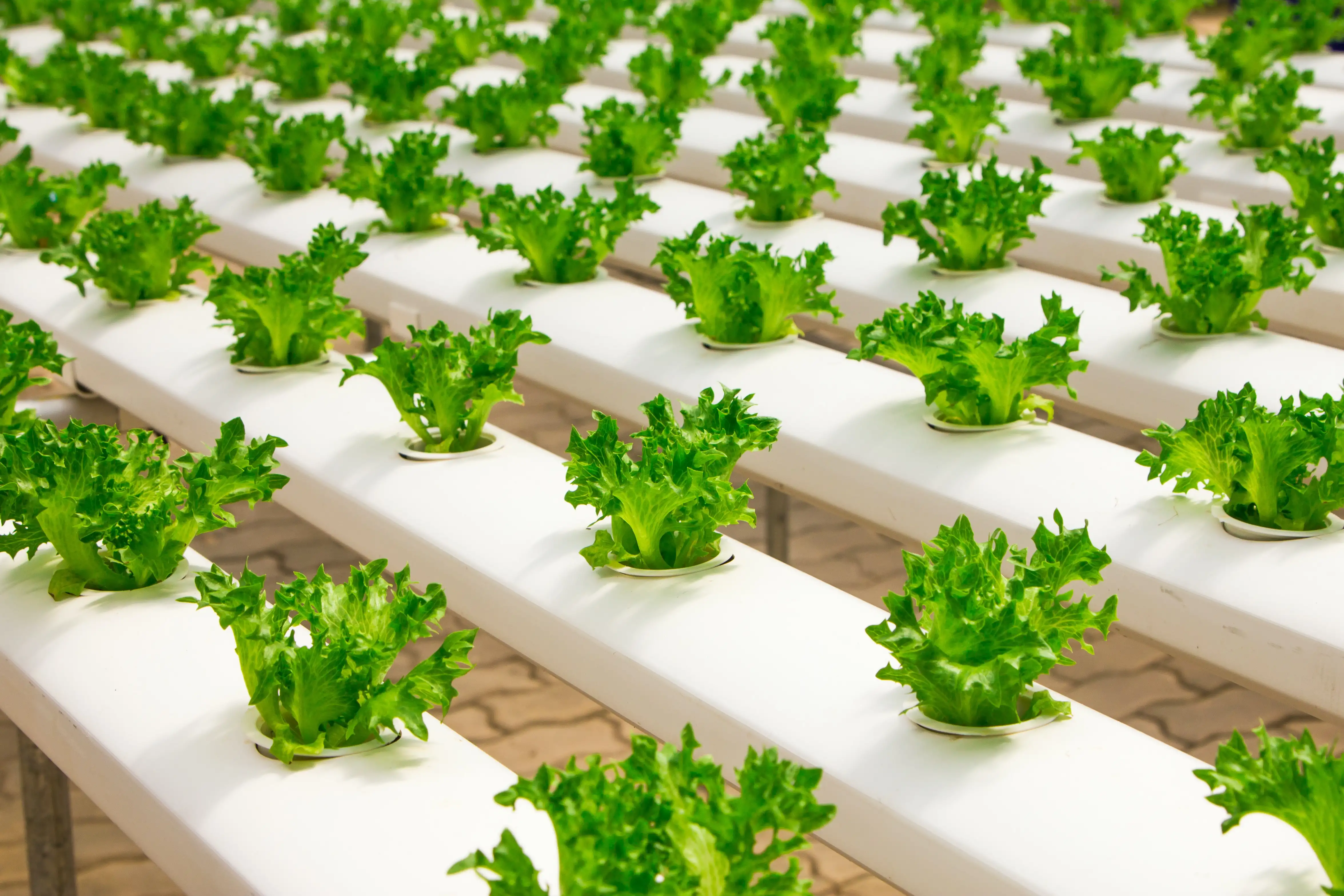
Our Theory of Transformation
An Introduction to Re:food's
Theory of Transformation
The power of theories of transformations and paradigm shifts
A Theory of Transformation provides a conceptual roadmap for driving fundamental system changes. At its core, it denotes a paradigm shift from one system state to another through the confluence of various factors, including technological innovation, shifts in societal values, changes in policy and regulatory landscapes, and evolution in the physical environment. It offers a way to navigate systemic change, highlighting how different interventions can intersect and synergize to bring about transformation.
System transformations are powerful tools for creating impact because they allow us to address root causes of unsustainable system states, rather than merely treat symptoms of systemic problems. By understanding the interconnectedness of systems, we can implement interventions that simultaneously address multiple issues, leading to holistic, enduring solutions to redefine power structures, redistribute resources, and renegotiate societal values.
Moving from incremental changes to radical transformations paves the way for a more equitable, resilient, and sustainable world.
What must be true for this theory to succeed?
Our theory is built on the following assumptions:
The global economy must, and therefore will, become sustainable in the near to medium term
The Earth, the only home humanity has so far, is a blue and green planet full of life bundled together in an intricate ecosystem called the biosphere, just twenty kilometers thick. Without this ultra-thin layer of life, we cannot survive. For millennia, human civilization was forced to find a balance between growth and natural resource depletion – a geological epoch called the Holocene. But recently, the pressures human activities exert on the biosphere have become so great that scientists are considering whether the Earth has entered an entirely new geological epoch: the Anthropocene or the age of humans. At the current dawn of the Anthropocene our human activities are rapidly destroying ecosystems, depleting natural resources, and even changing the composition of the atmosphere. However, society cannot sustainably consume more resources than the ecological system of the biosphere can regenerate; therefore, sooner or later, our economy will need to embrace its original definition: careful management of available resources. As heat waves and extreme weather become more and more common, the pressure on the global financial system to become more sustainable is increasing. Eventually, we will reach the Good Antropocene; the question is only how bumpy the path there will be.
The global food system is both the most significant barrier to and the key to unlocking a sustainable global economy
On the one hand, modern agriculture contributes approximately 25% of global greenhouse gas emissions and is a major driver of deforestation, eutrophication, and depletion of water resources. Industrialized meat production causes tremendous ethical and environmental problems, and the global food supply chains result in food loss and plastic pollution.
These practices threaten biodiversity, destabilize ecosystems, and exacerbate climate change. Moreover, despite massive food production, global hunger persists, and unhealthy diets contribute to widespread health issues.
But, it's within these very challenges that opportunities for transformation exist. By embracing practices like regenerative agriculture, we can turn food production into a net carbon sink rather than a source of emissions. Developing diversified, localized food systems could bolster food security and resilience against climate shocks. Our food system could create habitats where life on land and at sea thrives. Microbes can transform waste from other industries into food and materials, improve soil health and gut health. Even as food can make us sick, it can also be our medicine, helping us to avoid massive suffering and healthcare costs.
The food system transformation is a tremendous business opportunity
The value of the nutrients we flush down our toilets, the food we throw away or that rots or molds, the feed for factory animals, the material ending up in landfills and the sea, the degraded soil if restored, and the healthcare not needed if we did not eat ourselves sick, is worth trillions and trillions of dollars. Per year. It’s a huge value waiting to be unlocked by innovative companies.
Only system transformations guided by science can lead to a sustainable food system
The scale and scope of the problems we face today—like climate change, biodiversity loss, and systemic inequality—demand more than incremental tweaks. These are complex, interrelated issues that stem from deep-seated systemic faults. They require holistic, systemic transformations capable of delivering changes at the necessary pace and scale. That said, it's important to note that incremental solutions and transformative changes aren't mutually exclusive. They can and often do exist together on a continuum of change. Incremental improvements can pave the way for transformation by creating enabling conditions, building momentum, or demonstrating the viability of new approaches.
New innovative companies play a crucial role in the food system transformation
Startups often act as catalysts for innovation, capable of fast-paced experimentation and risk-taking. They can leverage technologies such as precision fermentation, precision agriculture, and alternative proteins (like lab-grown meat or plant-based substitutes), work towards shortening and localizing food supply chains, and promote sustainable consumption in a way many incumbents struggle to do. We look for companies that can transform the food system through their products, services, and operating motels, and become category-defining leaders in the new, more sustainable system.
Systems change always implies socio-technical systems change
Systems are resilient to change because transformations require changes in not only in technology but also in politics, economics, society, and culture. The superior technology will only be able to break through if the timing is right. Therefore, a good company strategy must ride perfect storms of several simultaneous changes in the social-technical system.
Conclusion
The food industry must and will develop entirely new value chains to become more sustainable and offset sustainability problems from other industries. This is a monumental business opportunity for investors and entrepreneurs who understand how to ride changes in policy and demand, applying the right transformative innovations at the right place in the vaule chains, with the right timing.
As we stand at this pivotal juncture, Re:food is committed to harnessing this transformative potential. We are eager to contribute to the reimagining of the food system, uncovering and capitalizing on the myriad business opportunities that this necessary transformation offers.
Are you interested in learning more about our Theory of Transformation of the global food system? Check out Food is Solvable!



